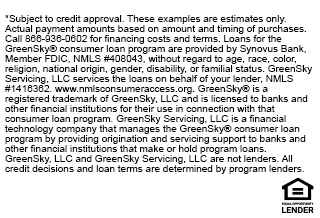You should be concerned if your lights flicker frequently. An occasional power surge because of your community’s increased electricity usage during peak demand is not uncommon. But if your lights flicker inconsistently or at specific times, like when your AC kicks on, it’s a warning sign.
4 Reasons Air Conditioner Start-Up Causes Your Lights To Flicker
Your Phoenix air conditioning system is getting a real workout this summer. It’s a fact that ACs pull a lot of power at start-up. When your cooling system starts, it temporarily drains the energy from other sources, including light fixtures.
Older homes in Maricopa County communities are already struggling with modern families’ higher electricity demands. Older wiring contributes to many electrical problems, including flickering lights. But greater use and a limited power supply means all homes can have electrical surges.
In one bizarre situation, a family’s lights flickered when their neighbor’s air conditioner turned on. They investigated and learned both older homes had insufficient, aging wiring and both were connected to the same transformer. Every time the neighbor’s AC kicked on, it caused a voltage drop next door.
Frequent light flickers can indicate your home or commercial property has a significant electrical problem. Here are 4 reasons why lights flicker when your AC starts:
- Broken capacitor – The capacitor gives your compressor the surge of power that’s needed for HVAC startup. If your lights occasionally dim about 3%-5% when the AC starts, that’s not critical. But if they lose half their brightness, you may have a damaged capacitor. Air conditioning capacitors are high-voltage components and very dangerous; call your professional electrician asap.
- Damaged, loose wires – Damaged and loose wires can cause a voltage drop when your AC turns on. Look for signs of discoloration/scorching or smoke coming from the outlet. Other signs of wiring problems are:
- Outlet warm to the touch or has a burning smell, buzzing noises
- Wire insulation frayed/crumbly
- Inadequate wiring – Sometimes your wiring is secure and in great shape but the type of wiring your home has may not be strong enough to support AC electrical requirements. This might occur if the cooling and heating system was installed without a licensed electrician and/or the wrong type of wire was used. Heavy-duty wiring is needed for HVAC systems. If aluminum wiring was used in place of copper, that could also be the reason the lights flicker. Consider copper rewiring.
- Overloaded circuit – HVAC systems need a dedicated circuit. Instead of dimming, if your lights turn completely off when the AC powers up, your circuit’s probably overloaded or double-tapped. There may be other large appliances pulling power or your older home’s wiring can’t handle modern AC electrical requirements. Overloaded circuits are dangerous and shouldn’t be ignored.
Choosing A Professional Electrician
Some electric services offer sales incentives to their service technicians. This can lead to recommendations for unnecessary purchases or pushes for a specific brand’s products. TIO Electric pros don’t receive commissions.
We have one agenda,and it’s all about you.Providing you with the industry-best electrical services you need is our priority. We care about our reputation for guaranteed satisfaction, but your family’s safety is even more important.
We don’t take shortcuts that might put your property at risk. You can trust us to leave our work area as clean as we found it. TIO Electric is licensed, bonded, and insured to protect your property and our electric professionals.
Contact TIO today if you have questions about your electrical system. You have choices, and we’ll work hard to make you glad you chose Turn It On Electric.













